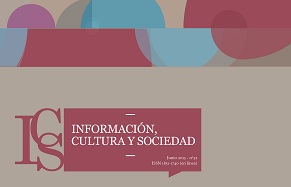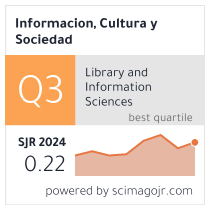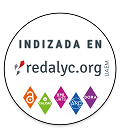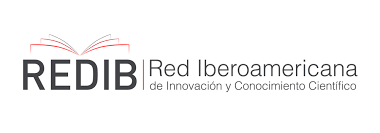Three global perspectives in Library and Information Science
Abstract
Three perspectives of Library and Information Science (LIS) are discussed: The first one is about the increasingly nearness between the point of view of the librarian and of the user about their information needs and information-seeking strategies; the second perspective points out on the Latin American position regarding more developed countries; the third one, states LIS needs to permanently ask itself about its ontological and epistemological foundations. The perspectives are examined taking into account its global aspects, because of the characteristics of the dynamics of the relations between individuals and societies as that is what the current context requires.Downloads
References
Álvarez Zapata, Didier. 2005. Ciudadanía y lectura: retos y perspectivas para la biblioteca pública en América Latina. En Jaramillo, Orlanda; Montoya, Mónica; Álvarez Zapata, Didier, comps. Biblioteca pública y lectura pública. Medellín: Escuela Interamericana de Bibliotecología. Universidad de Antioquia, p. 136-182.
Bauman, Zygmunt. 1999. La globalización: consecuencias humanas. México: Fondo de Cultura Económica.
Buckland, M. 2012. What kind of science can Information Science be? En Journal of Information Science and Technology. Vol. 63, no. 1, 1-7.
Budd, John M. 2004. Academic libraries and knowledge: a social epistemology framework. En The Journal of Academic Librarianship. Vol. 30, no. 5, 361-367.
Capurro, Rafael. 2007. Epistemología y ciencia de la información. En Enl@ce: revista venezolana de información, tecnología y conocimiento. Año 4, no. 1, 11-29.
Chartier, Roger. 1996. El mundo como representación. Barcelona: Gedisa.
Fiels, Keith Michael. 2011. A library “State of the State”: trends, issues and myths. En Advances in Librarianship: Librarianship in time of crisis. Vol. 34, 3-16.
García Canclini, Néstor. 2004. Diferentes, desiguales y desconectados: mapas de la interculturalidad. Barcelona: Gedisa.
García Canclini, Néstor. 1999. La globalización imaginada. Buenos Aires: Paidós.
Hernández Quintana, Ania R. Paradigmas dominantes y emergentes en la Bibliotecología y la Ciencia de la Información: continuidad y ruptura en la dinámica informacional. En Acimed Vol. 16, no. 3. < http://scielo.sld.cu/scielo.php?script=sci_arttext&pid=S1024-94352007000900002> [Consulta: 05 abril 2016].
Hjorland, Biger. 1998. Theory and metatheory of information Science: a new interpretation. En Journal of Documentation. Vol. 54, no. 5, 606-621.
Jameson, Frederic. 2006. Posmodernismo y sociedad de consumo. En La posmodernidad. Selección y prólogo de Hal Foster. Barcelona: Kairós, 165-186.
Matijevic, Nicolás. 1974. Integración bibliotecológica latinoamericana (sus perspectivas en los umbrales del siglo XXI). En Asociación de Bibliotecarios Graduados de la República Argentina. 11ª Reunión Nacional de Bibliotecarios: planificación bibliotecaria iberoamericana en los umbrales del siglo XXI. Buenos Aires: ABGRA.
Menéndez Navarro, Alfredo; Olagüe de Ros, Guillermo y Astrain Gallart, Mikel. 2002. Ciencia, positivismo e identidad nacional en el Cono Sur: la participación argentina en los proyectos documentales contemporáneos (1895-1928). En Hispania vol. LXII/1, no. 210, 221-258.
Meneses Tello, Felipe. 2007. Análisis bibliotecológico-político: bibliotecas, democracia y ciudadanía. En Gimeno Perelló, Javier; López López, Pedro y Morillo Calero, María Jesús, coords. De volcanes llena: biblioteca y compromiso social. Gijón: Trea, p. 393-416.
OCDE. 2015. Students, computers and learning: making the connection. Paris: PISA, OECD Publishing. < http://dx.doi.org/10.1787/9789264239555-en> [Consulta: 31 marzo 2016].
Ortega y Gasset, José. 1944. El libro de las misiones. 3ª. Ed. Buenos Aires: Espasa-Calpe.
Parada, Alejandro E. 2014. Posmodernismo y bibliotecología. En Información, cultura y sociedad. No. 30, 5-10.
Parada, Alejandro. 2015. Seminario de Perspectivas globales en Bibliotecología y Ciencia de la Información. Mayo-Junio de 2015.
Sabor, Josefa Emilia. 1966. Revisión del concepto de las funciones bibliotecarias en América Latina. En Boletín de la Unesco para las Bibliotecas. Vol. 20, no. 3, 116-125.
Svenonius, Elaine. 2001. The intelectual foundation of Information Organization. Cambridge; London: The MIT.
Varsavsky, Oscar. 1969. Ciencia, política y cientificismo. Buenos Aires: Centro Editor de América Latina.
Vilas, Carlos María. 2013. El poder y la política: el contrapunto entre razón y pasiones. Buenos Aires: Biblos.
Villaseñor Rodríguez, Isabel. 2015. Un nuevo usuario de información: el usuario 2.0. En Calva González, Juan José, coord. Bibliotecas, web 2.0 y teoría sobre usuarios. México: Universidad Nacional Autónoma de México, Instituto de Investigaciones Bibliotecológicas y de la Información, p. 79-101
Authors publishing in this journal acknowledge the conditions below:
- Authors retain the copyright of their work while they transfer the right of the first publishing to the journal, under the Creative Commons Attribution-ShareAlike 4.0 International (CC BY-SA 4.0) Licence, which allows third parties to reproduce them under the condition that express mention is given to the author and to its original publication in the journal.
- Authors may enter into other contractual and independent arrangements for the non-exclusive distribution of the version of the article published in this journal (for instance, it can be published in an institutional repository or in a book). In any case, an express mention should be given to its first publication in the journal.
- It is permitted and encouraged to publish online the articles (for example, on institutional or personal pages).


























